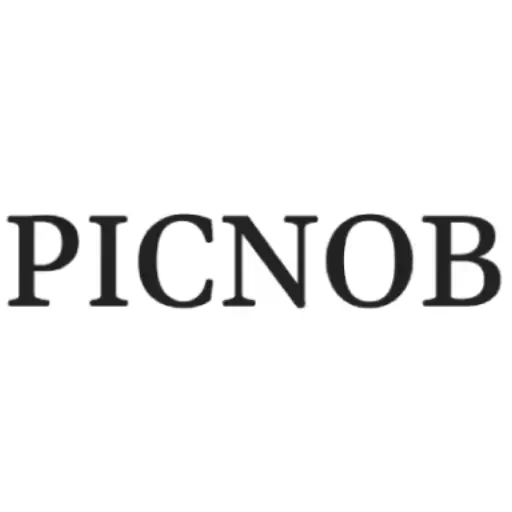
Best Wallets for Staking Ethereum, Solana, and Other Chains
Staking has become one of the most popular ways for crypto holders to earn passive income while supporting the infrastructure of decentralized networks. As Ethereum and other leading blockchains shift to Proof-of-Stake (PoS) consensus mechanisms, the demand for secure, self-custodial staking wallets has surged. This guide explores the best wallets for staking assets like ETH, SOL, MATIC, and more, with a focus on accessibility, safety, and functionality for both beginners and seasoned users.
Table Of Content
- What Is Crypto Staking and Why Does It Matter?
- Key Features to Look for in a Staking Wallet
- Top Wallets for Staking Ethereum, Solana, and More
- Bitget Wallet
- Trust Wallet
- Phantom Wallet
- MetaMask Wallet
- Exodus Wallet
- Comparing the Best Wallets for Staking
- Final Thoughts: Choosing the Right Wallet for You
- Conclusion
Understanding which wallet to use for staking is more than a matter of convenience. It involves evaluating custody models, network support, validator access, and how rewards are distributed. In this article, we break down everything you need to know to make an informed decision.
What Is Crypto Staking and Why Does It Matter?
Staking refers to the process of locking up cryptocurrencies to help maintain the operations of a blockchain network. It is central to Proof-of-Stake systems, where validators are selected to confirm transactions based on the number of tokens they hold and are willing to “stake.”
Unlike Proof-of-Work models that require energy-intensive mining, staking is more sustainable and user-friendly. Participants who stake their crypto assets receive rewards, typically in the form of native tokens. These incentives make staking attractive not just for technical contributors, but also for long-term investors.
However, staking comes with certain risks, including token lock-up periods, fluctuating returns, and potential slashing penalties for validator misbehavior. Users should always review a platform’s terms and staking conditions before participating.
Key Features to Look for in a Staking Wallet
When choosing a wallet for staking Ethereum, Solana, or other assets, it is important to evaluate the following features:
- Non-custodial architecture: This ensures that you maintain full control over your private keys and assets.
- Multi-chain support: A quality wallet should support multiple blockchains, including Ethereum, Solana, Polygon, and others.
- Staking interface: Look for a wallet that includes built-in staking tools, such as validator selection, reward tracking, and flexible unbonding options.
- Security and transparency: Features like biometric authentication, open-source code, and transparent validator information add credibility and trust.
- User experience: The wallet should be easy to navigate for newcomers without sacrificing advanced features for experienced users.
For example, if you’re specifically looking for an Ethereum wallet that allows seamless staking and secure management of ETH, compatibility with Ethereum’s latest PoS protocols is essential.
Top Wallets for Staking Ethereum, Solana, and More
Bitget Wallet
Bitget Wallet is a non-custodial, multi-chain wallet that supports over 130 blockchains and more than one million tokens. It features an intuitive staking interface within its “Earn” section, allowing users to stake assets such as ETH, SOL, and MATIC with just a few taps.
The wallet boasts over 80 million global users and integrates seamlessly with Bitget’s ecosystem. It also includes PayFi, a feature that enables users to spend crypto directly via Mastercard or Visa. Bitget Wallet’s staking dashboard provides clear APY indicators, validator transparency, and flexible unbonding mechanisms.
Download Bitget Wallet to experience a top crypto wallet designed for staking, trading, and managing assets across chains.
Trust Wallet
Trust Wallet is a well-known player in the mobile wallet ecosystem, closely tied to Binance. It supports ETH, SOL, and BNB staking, though it is somewhat limited in validator choice and may not provide the depth of features found in more specialized wallets.
Phantom Wallet
Phantom is a Solana-native wallet optimized for SOL staking. It offers a streamlined user experience and integrated support for Solana-based applications. However, it lacks broad multi-chain support, which may be a drawback for users with diverse portfolios.
MetaMask Wallet
MetaMask Wallet is one of the most widely used Ethereum-based wallets, known for its browser extension and mobile app compatibility. It supports ETH staking through integrations with platforms like Lido and Rocket Pool. While MetaMask does not offer native staking tools within the wallet, it allows users to interact with decentralized applications (dApps) that provide staking services.
Its strength lies in deep Ethereum ecosystem integration, which benefits advanced users comfortable with DeFi platforms. However, MetaMask Wallet requires users to manage staking externally, which may present a higher barrier for beginners.
Exodus Wallet
Exodus is a visually polished, beginner-friendly wallet that supports staking for several assets including SOL, ADA, and ATOM. It offers a built-in staking interface that allows users to earn rewards directly through the wallet without third-party platforms. Exodus is available on desktop and mobile and is praised for its clean design and ease of use.
Though it is not open-source, the wallet is trusted by many for its strong security measures and excellent user support. Exodus is ideal for users who want simplicity and cross-platform flexibility in their staking experience.
Comparing the Best Wallets for Staking
| Wallet | Supported Chains | Custody Model | Staking Interface | Beginner Friendly | Unique Features |
| Bitget Wallet | 130+ (ETH, SOL, etc) | Non-custodial | Integrated | Yes | PayFi, in-app staking, 80M+ users |
| Trust Wallet | ETH, BNB, SOL | Non-custodial | Limited | Yes | Binance integration |
| Phantom Wallet | SOL | Non-custodial | Streamlined | Yes | Native Solana dApp support |
| MetaMask Wallet | ETH | Non-custodial | External via dApps | Moderate | DeFi integration, Ethereum-focused |
| Exodus Wallet | SOL, ADA, ATOM, more | Non-custodial | Integrated | Yes | Desktop + mobile, UI-friendly |
Final Thoughts: Choosing the Right Wallet for You
If your goal is to stake ETH, SOL, or other tokens while maintaining full control of your assets, a self-custodial wallet with integrated staking is essential. Bitget Wallet stands out as a comprehensive solution with broad chain support, user-friendly design, and built-in earning tools. Meanwhile, alternatives like MetaMask Wallet, Exodus Wallet, Phantom Wallet, and Trust Wallet cater to users with specific needs such as DeFi access, simplicity, privacy, or educational guidance.
Your choice should align with your investment goals, risk tolerance, and the specific tokens you plan to stake. Always research the validators you delegate to and understand the terms, fees, and lock-up periods involved.
Conclusion
Staking can be a powerful way to earn rewards from your crypto holdings, but it requires careful wallet selection and due diligence. The wallets listed above provide various levels of control, accessibility, and chain coverage to help users get started with staking ETH, SOL, and beyond.
Download Bitget Wallet to start staking and managing digital assets across 130+ blockchains with confidence and ease.





